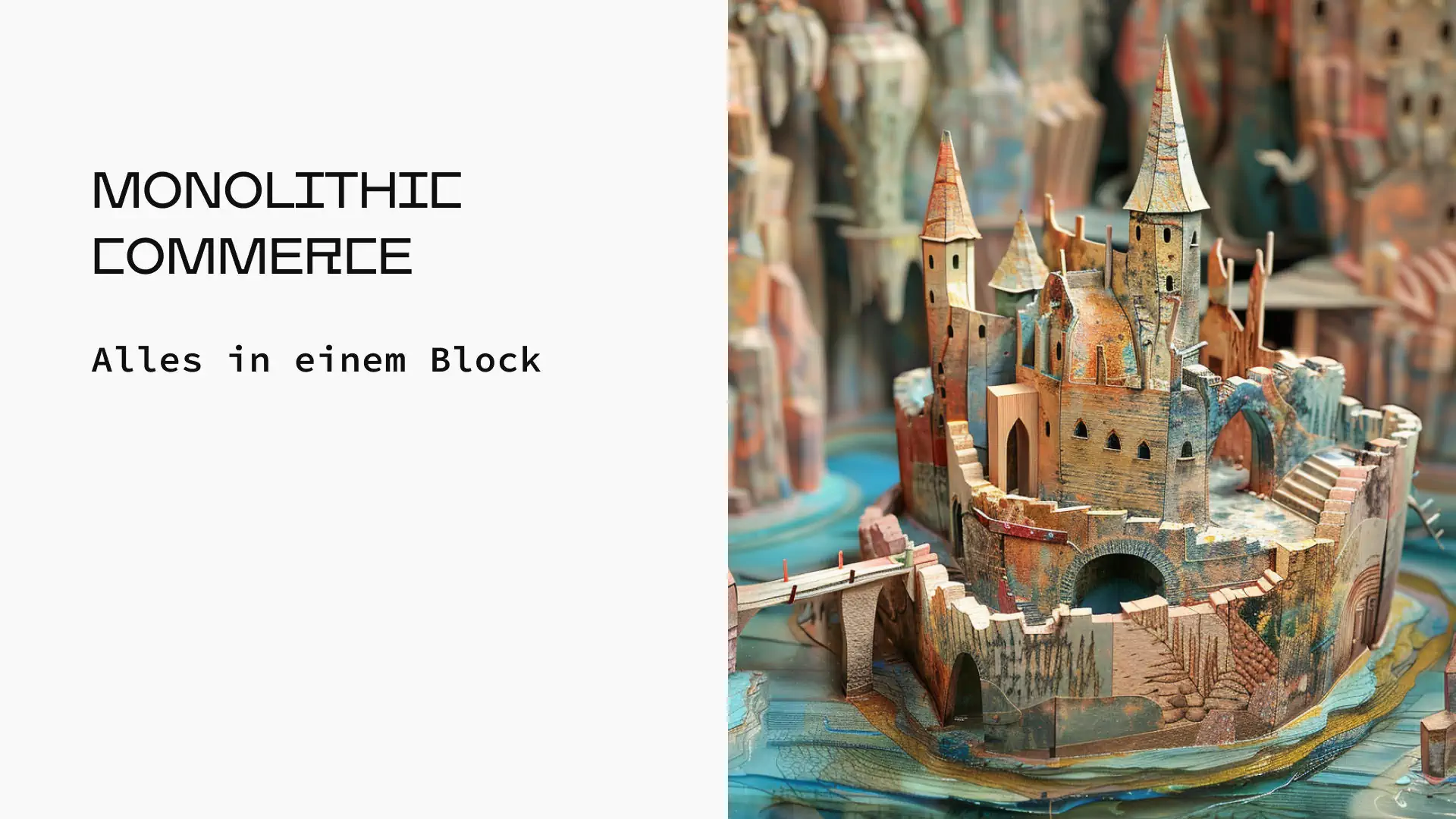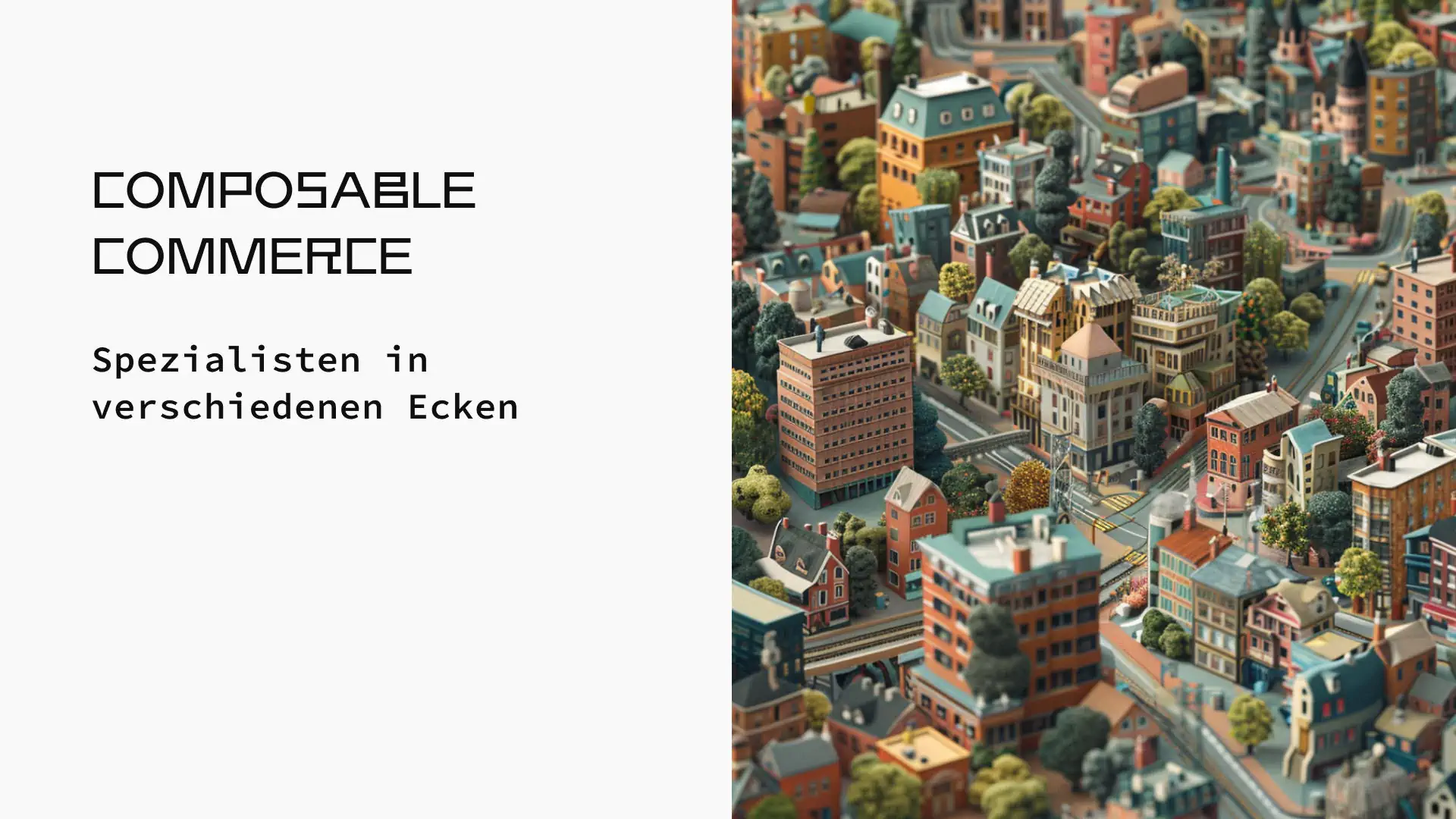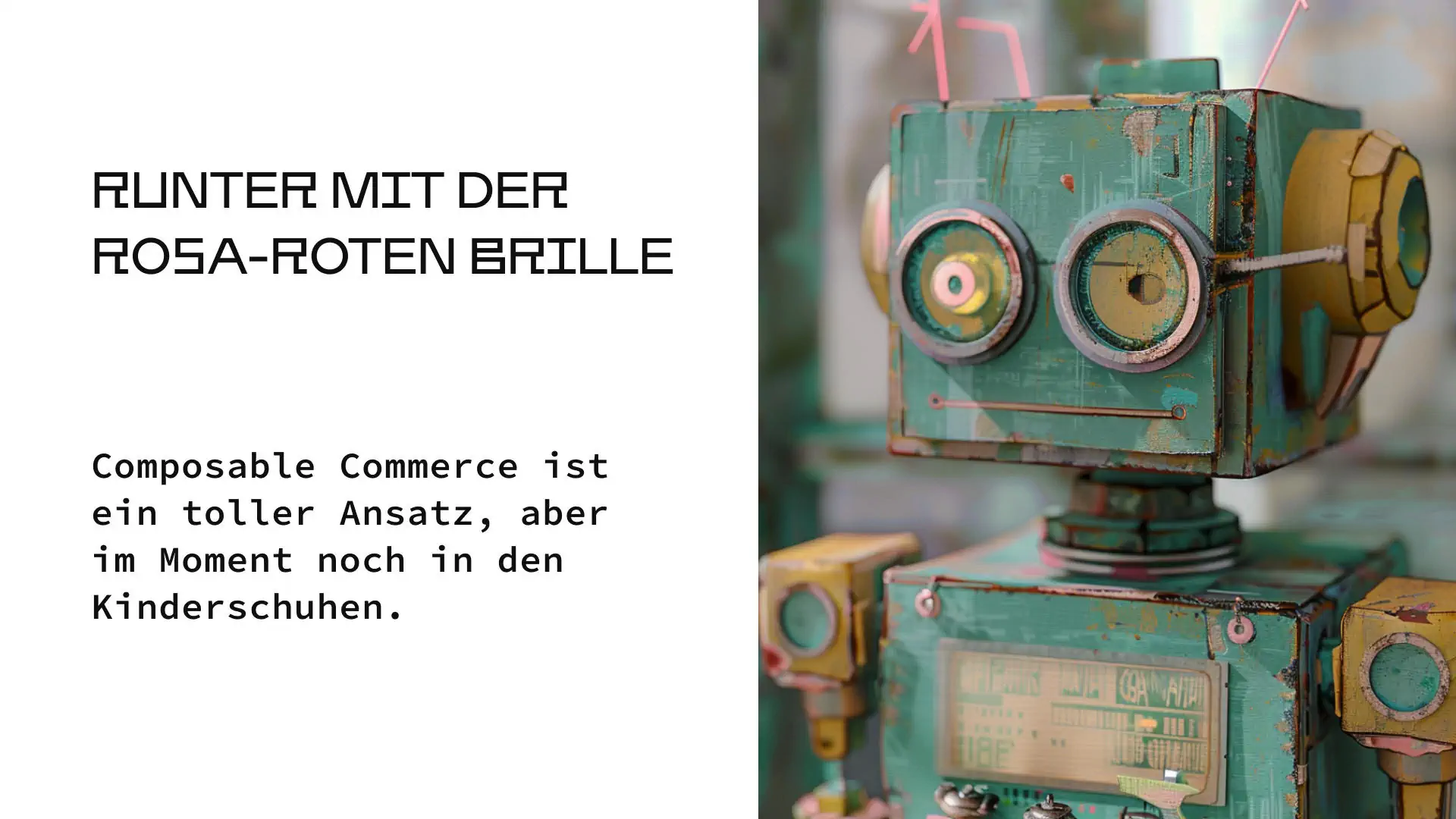
On March 19th, I held a talk about monolithic commerce vs. composable commerce and MACH architecture. Goal of my talk was to enable merchants to make sane decisions based on facts not promises.
Most people know the monolithic approach. Like the very big stones (the Monoliths) all features of your commerce application are developed in one huge codebase.
This application architecture is advantageous when you want to stay in full control of you codebase and infrastructure. Your team has all options to tweak your solution the way you want.
But where there s light, there is also shadow: Any kind of technological progress must be achieved by your team and will be paid by you.
 Slide "Monolithic Commerce", commerceTECH conference, 2024
Slide "Monolithic Commerce", commerceTECH conference, 2024
There will be a time, when most online shops are powered by Composable Commerce. Divided into multiple tiny applications (microservices) which are talking to each other via defined interfaces (API first) they are in charge of managing our online shops.
Powered by endless virtual servers (cloud native) these applications can work independently from frontends (headless). Merchants are free to choose from a colourful bouquet of microservices from various service providers.
They will seamlessly integrate with each other, and you can focus on new features instead of system maintenance.
 Slide "Composable Commerce", commerceTECH conference, 2024
Slide "Composable Commerce", commerceTECH conference, 2024
Most of these advantages are just promises. And they are hard to fulfill. Composable Commerce is quite complex and difficult to be done right. These days you usually become trapped with single vendors and their "composable" ecosystem.
Technical processes become cumbersome, because you're not in control anymore. You cannot debug the data in your application because most of the logic is hidden and the vendors side.
Costs might rise when you have to hire specialists, when you pay transaction based fees, when cloud infrastructure scales up automatically. Budget certainty becomes a topic of the past.
The biggest issue however that I see is missing interoperability. Composable Commerce can be truly successful if we start to develop standards and standardized data exchange formats. That will allow merchants to simply switch components without additional development.
 Slide "Summary", commerceTECH conference, 2024
Slide "Summary", commerceTECH conference, 2024
We crafted a questionnaire with 20 statements (german only) to figure out if composable commerce is a good fit or not.
Discuss with Rico the pros and cons of MACH architecture and composable commerce approaches for your project.
02.12.25